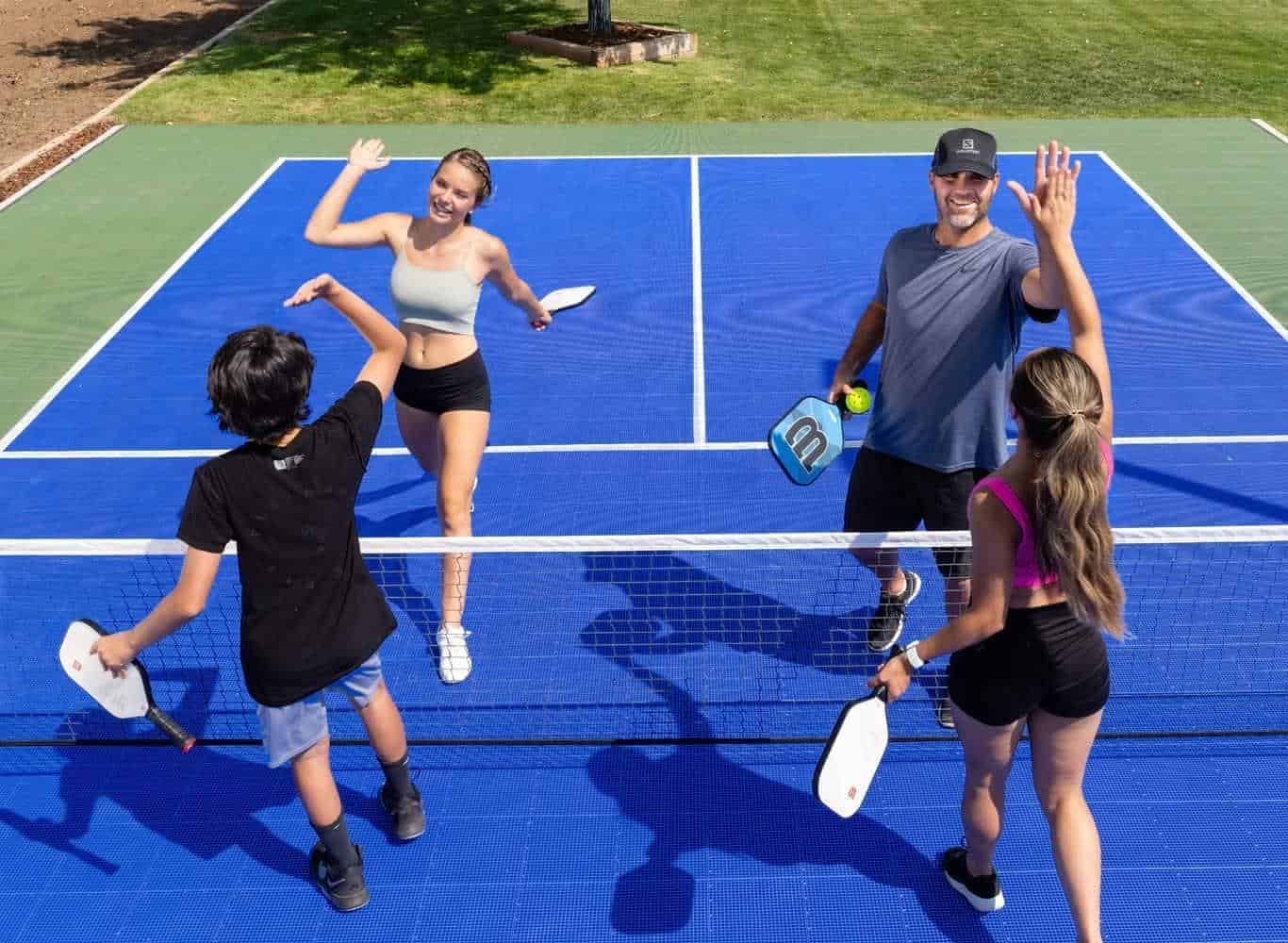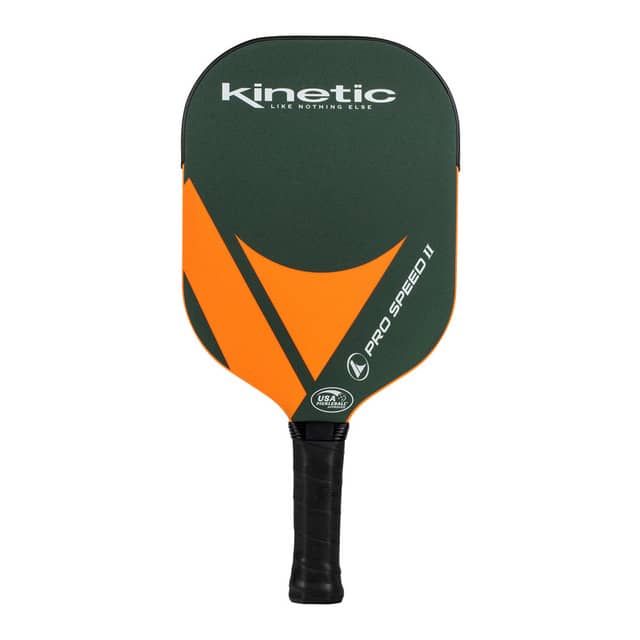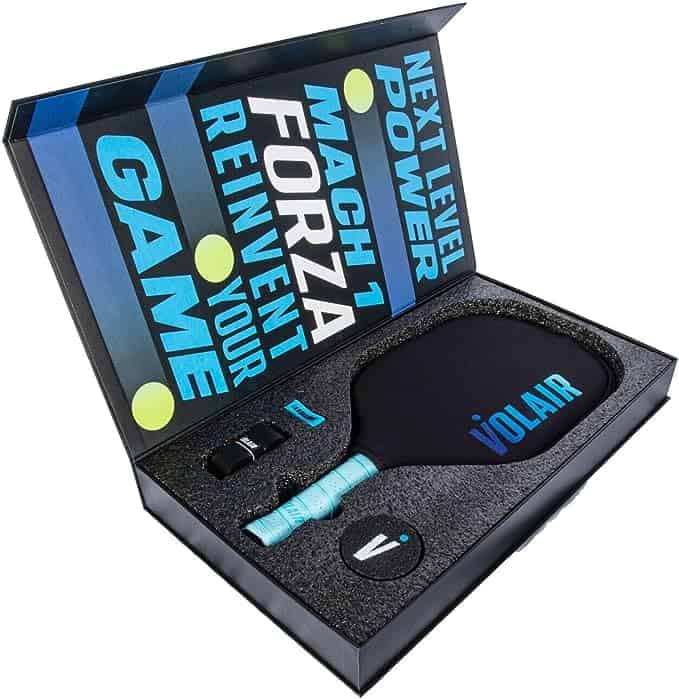11 Best Pickleball Etiquette Tips for Everyone
Pickleball etiquette is something everyone should know who plays. Pickleball is a fun and exciting sport that is gaining popularity all over the world. It’s a combination of tennis, badminton, and ping pong, played on a smaller court with a lower net.
Pickleball is easy to learn, but like any sport, it has its own set of rules and etiquette that players need to follow to ensure a fair and enjoyable game, especially as it continues to grow in popularity.
In this article, I will share with you ten simple pickleball etiquette tips that every player should know. These tips will help you become a better player, improve your sportsmanship, and make the game more enjoyable for everyone.
Whether you’re a beginner or an experienced player, these pickleball etiquette tips will help you avoid common mistakes and ensure that you’re following the rules of the game. So, let’s get started!

11 Must Know Pickleball Etiquette Guidelines
As a pickleball player, it is important to understand and follow the unwritten rules of pickleball etiquette. These rules are designed to promote respect, safety, and fair play among players. Here are 11 simple pickleball etiquette tips to keep in mind:
- Communicate Effectively: Effective communication is crucial in promoting a sense of camaraderie and sportsmanship on the court. Always make eye contact when saying the score, passing the ball, or even saying hello, sorry, or thank you.
- Respect the Court: Adhering to proper court behavior ensures a safe and enjoyable experience for all players. Avoid running or stepping on the lines, and always wait for the ball to stop rolling before retrieving it.
- Respect Your Opponents: Treat your opponents with respect and dignity, and avoid any behavior that could be interpreted as rude or unsportsmanlike. Never argue with your opponents or question their calls.
- Respect Your Partner: Your partner is your ally on the court, and it is important to treat them with respect. This is fundamental to good pickleball etiquette. Always communicate clearly and avoid criticizing or blaming them for mistakes.
- Know the Rules: Do your best to know and understand the rules of pickleball. This will help avoid disputes on the court and ensure that everyone is playing by the same set of rules.
- Bring Your Own Ball: Do not rely on other players to always bring the pickleball. Have your own stash to ensure that you can always play, even if others do not have a ball.
- Be Mindful of Noise: Avoid making excessive noise on the court, such as shouting or grunting. This can be distracting to other players and disrupt the flow of the game.
- Be Prompt: Be on time for your games and ready to play. This shows respect for your opponents and helps keep the game on schedule. This is one of the most frustrating things: if you are not on time, playing time is timebound. So, this is critical for good pickleball etiquette.
- Pick Up After Yourself: Always pick up your trash and equipment after the game. This helps keep the court clean and safe for other players.
- Have Fun: Finally, remember that pickleball is a game and should be enjoyed by all players. Have fun, be respectful, and play your best.
- Call Balls Fairly: You should always make line calls fairly. If it is too close to call, then you should give the advantage to your opponent.
By following these simple pickleball etiquette tips, you can help ensure a safe, enjoyable, and fair game for all players.
Basic Rules and Guidelines
As with any sport, pickleball has its own set of rules and guidelines that players should follow. Good pickleball etiquette is to take the time to at least understand the basic rules. Some of these rules are official and can be found in the official tournament rulebook, while others are unwritten rules that players should follow to maintain good sportsmanship and pickleball etiquette on the court.
Understand the Rules of the Game
First and foremost, it is an important part of pickleball etiquette to understand the basic rules of pickleball. The game is played on a court that is 20 feet wide and 44 feet long, with a net that is 36 inches high at the ends and 34 inches high in the middle.
The server must stand behind the baseline and serve the ball underhand, diagonally to the opponent’s service court. The ball must bounce once on the opponent’s side before it can be hit back. The game is played to 11 points, and the winner must win by 2 points.
Pickleball Etiquette On The Court
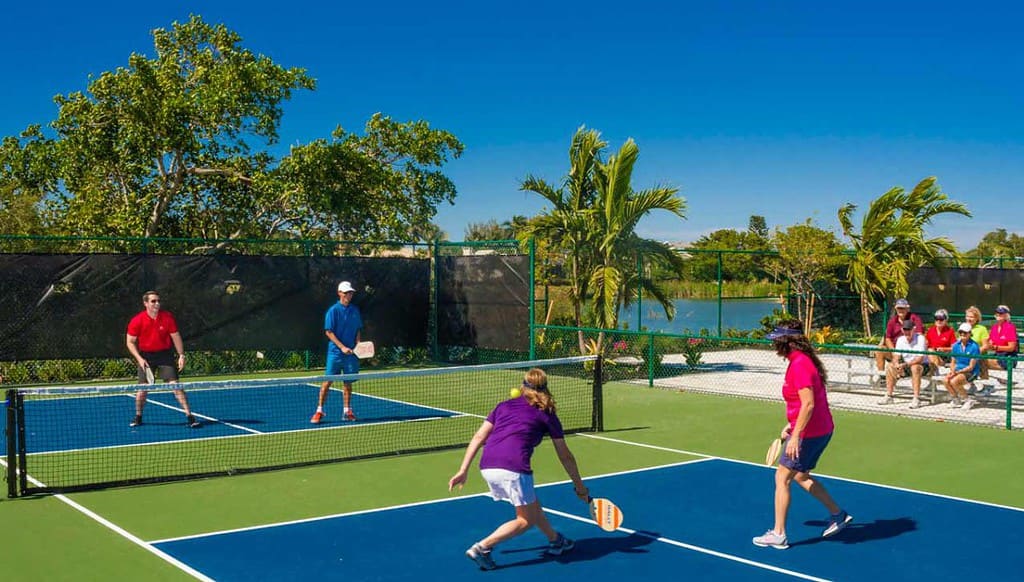
It’s important to follow proper pickleball etiquette on the court to ensure a positive and enjoyable experience for everyone. Here are some simple pickleball etiquette tips to keep in mind:
- Respect the court: Always enter and exit the court from the designated areas. Avoid stepping on the lines of the court, as it can cause confusion and lead to disputes.
- Stay aware of your surroundings: Be mindful of other players on adjacent courts and avoid interfering with their games. If a ball from another court lands on your court, stop play and return the ball to the appropriate court.
- Be courteous to your opponents: Shake hands or fist bump with your opponents before and after the game. Avoid making excessive noise or celebrating too loudly after a point, as it can be distracting or disrespectful to your opponents. This can make play so much better and more fun.
- Stay in your designated area: Practice good pickleball etiquette by avoiding encroaching on your partner’s side of the court or crossing the centerline during play. Stay in your designated area to avoid confusion and prevent collisions.
- Don’t touch the ball on the court: If a ball lands on the court during play, good pickleball etiquette is to let it come to a stop before picking it up. Avoid touching the ball while it’s in play, as it can lead to a fault or penalty.
- Be mindful of the baseline and sideline areas: Avoid standing too close to the baseline or sideline areas, as it can be distracting or obstructive to your opponents. Stay a reasonable distance away to give your opponents room to play.
- Communicate with your partner: Effective communication with your partner is key to success in pickleball. Discuss strategy and positioning before and during play to ensure a cohesive and effective team. While it sounds easy, this is so important. This is a foundation of good pickleball etiquette. Without this communication, it can be stressful for you and your partner.
- Be honest and fair: Always play with integrity and honesty. This is essential for good pickleball etiquette. If you make a mistake or hit the ball out of bounds, own up to it and call it out. Cheating or bending the rules can ruin the game for everyone.
- Stay focused and avoid distractions: Avoid using your phone or smartwatch or engaging in distracting behavior during play. This is just bad on-court etiquette. Stay focused on the game and avoid disrupting the flow of play.
- Have fun and be a good sport: Above all, remember to have fun and be a good sport. Win or lose, maintain a positive attitude, and respect your opponents. Enjoy the game and the camaraderie of your fellow players.
By following these simple pickleball etiquette guidelines, you can ensure a positive and enjoyable experience for yourself and your fellow players on the pickleball court.
Respect for Opponents and Partners
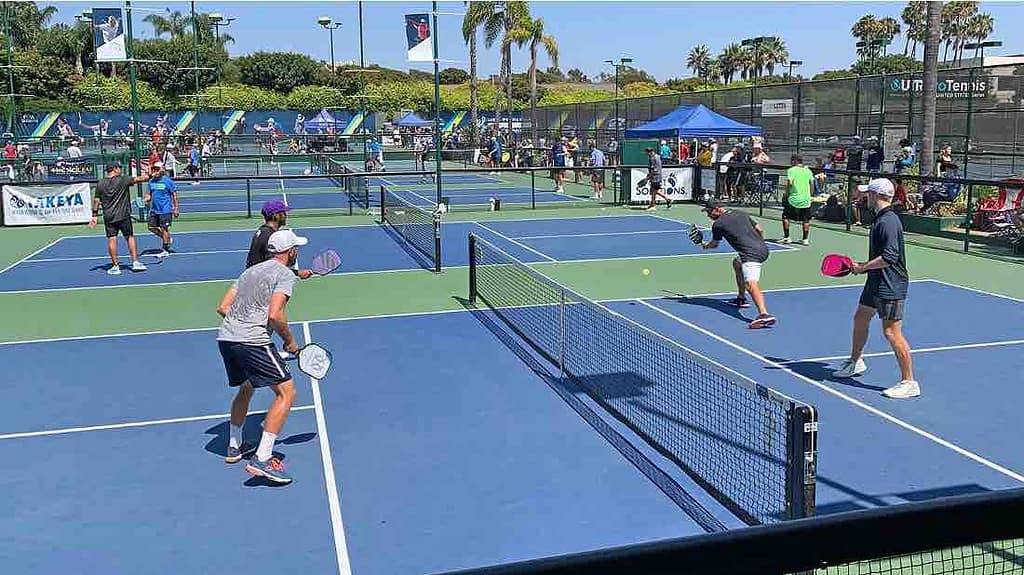
As a pickleball player, it is crucial to show respect for your opponents and partners. This includes treating them with courtesy and fairness both on and off the court. Here are a few tips to keep in mind when it comes to respecting your fellow players:
- Give them space: Respecting your opponents’ personal space on the court is good pickleball etiquette. Avoid crowding them or getting too close, especially during shots or serves. This will help prevent accidents and injuries and will also show that you value their safety and well-being.
- Be gracious in victory and defeat: Whether you win or lose, it’s important to be gracious and respectful towards your opponents. This demonstrates great pickleball etiquette. Congratulate them on a good game, and avoid gloating or rubbing your victory in their faces. Similarly, if you lose, don’t get angry or throw a tantrum. Instead, take it as an opportunity to learn and improve for next time.
- Avoid excessive celebration or frustration: While it’s okay to show some emotion during a game, try to keep it under control. Don’t get too carried away with celebrating your own points or shots, and avoid showing excessive frustration or anger when things don’t go your way. This will help maintain a positive and respectful atmosphere on the court.
- Communicate effectively: Good communication is key to a successful game of pickleball. Make sure to communicate clearly and respectfully with your partner and opponents, and avoid any aggressive or confrontational language. This will help prevent misunderstandings and conflicts and will also show that you value their input and opinions.
By following these simple tips, you can help foster a culture of respect and sportsmanship in the world of pickleball. Remember, at the end of the day, it’s not just about winning or losing – it’s about enjoying the game and treating your fellow players with kindness and respect.
Communication in Pickleball
Communication is key in any sport, and pickleball is no exception. It is important to communicate with your partner and opponents to avoid confusion and ensure a fair game. Here are a few etiquette tips for effective communication in pickleball:
- Call the score loudly: It is important to call the score before each serve and loudly enough for everyone on the court to hear. This helps avoid disputes and confusion over the score. I always make sure to call the score clearly and loudly so that everyone knows what the score is.
- Introduce yourself: Before starting a game with new people, it is important to introduce yourself to others. This helps create a friendly and welcoming environment. I always make sure to introduce myself to new players before starting a game.
- Call the ball: If you are going for a ball that is close to your partner, it is important to call out “mine” or “yours” to avoid collisions. This also helps your partner know where you are on the court. I always make sure to call the ball when necessary to avoid any accidents.
- Be respectful: It is important to maintain respectful communication with your partner and opponents throughout the game. Avoid trash-talking or negative comments and instead focus on positive and encouraging communication. I always try to be respectful and positive when communicating with others on the court.
Paddle and Ball Management

It’s important to know how to manage your paddle and ball properly. Here are some pickleball etiquette tips to help you improve your paddle and ball management skills:
- Respect Ball Ownership: One of the most important rules of pickleball etiquette is to respect ball ownership. If a ball lands on your court, it belongs to you and your partner. If a ball lands on another court, it belongs to the players on that court. Make sure to return any stray balls to their rightful owners.
- Keep Your Paddle Close: When you’re not using your paddle, keep it close to you. This will prevent you from accidentally hitting someone with it or leaving it in someone else’s way. You can keep your paddle on the ground next to you or hold it in your non-dominant hand.
- Avoid Distracting Others: When you’re waiting for your turn to play, avoid distracting others by bouncing the ball or tapping your paddle on the ground. This can be distracting and annoying to other players. Instead, focus on the game and wait patiently for your turn.
- Use the Right Equipment: Make sure you’re using the right equipment for your skill level. If you’re a beginner, use a paddle that’s designed for beginners. If you’re more advanced, use a paddle that’s designed for advanced players. Using the right equipment will help you play better and improve your skills.
- Keep Your Balls in Good Condition: Make sure your pickleball balls are in good condition. If they’re worn out or damaged, replace them with new ones. This will help you play better and prevent injuries.
Etiquette for Different Skill Levels
As a seasoned pickleball player, I understand the importance of etiquette on the court. It not only ensures that everyone has an enjoyable experience, but it also helps to prevent injuries and conflicts. When it comes to pickleball, there are players of different skill levels, and each level requires its own set of etiquette rules. Here are some tips for beginners, new players, and experienced players:
Beginners
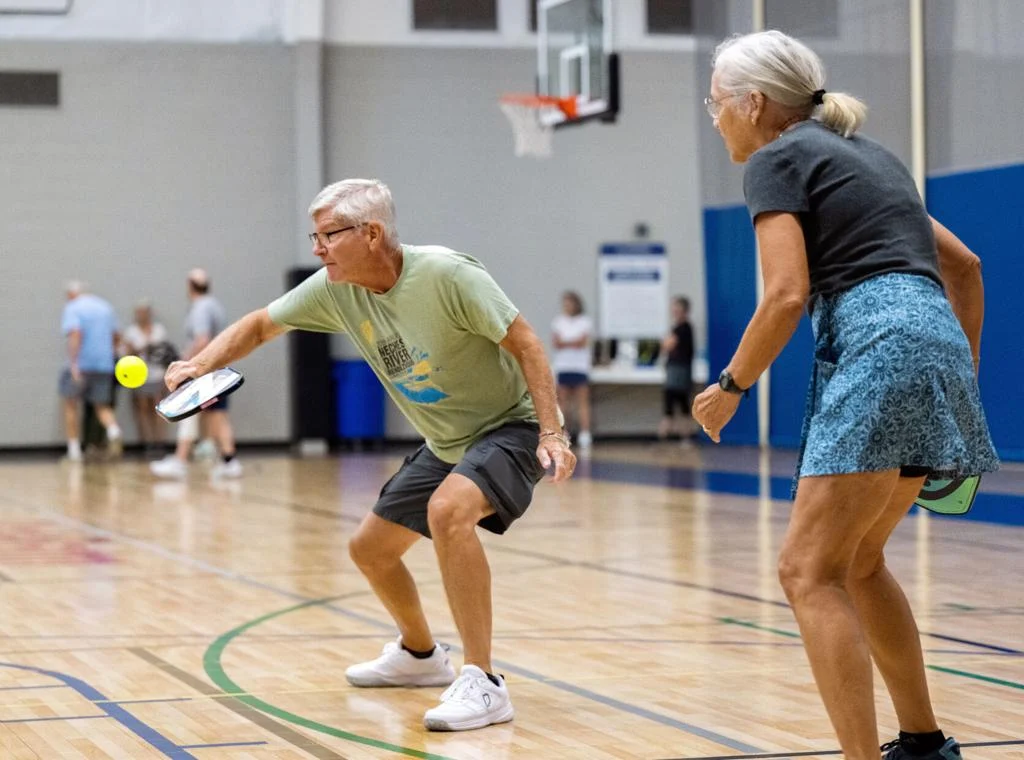
If you are new to pickleball, it’s important to remember that everyone starts somewhere. Here are some etiquette tips to keep in mind:
- Introduce yourself to other players before the game starts.
- Avoid crossing over a pickleball court when a point is ongoing.
- If you are unsure about a call, ask for clarification politely.
- Don’t be afraid to ask for advice or tips from more experienced players.
New Players
If you are a new player, you may have some experience with other racket sports, but pickleball has its own unique etiquette rules. Here are some tips to help you fit in:
- Watch and learn from more experienced players.
- Be respectful and courteous to other players.
- Don’t argue about calls or get upset if you make mistakes.
- Don’t take the game too seriously, and have fun.
Experienced Players
If you are an experienced player, you know how important it is to maintain a high level of sportsmanship. Here are some tips for experienced players:
- Be a role model for other players by demonstrating good sportsmanship.
- Don’t get upset if you lose a game or make a mistake.
- Be patient and encouraging with less experienced players.
- Avoid using aggressive tactics to intimidate other players.
Remember, regardless of your skill level, it’s important to always be respectful and courteous to other players on the court. By following these etiquette tips, you can help ensure that everyone has an enjoyable experience playing pickleball.
Community and Recreational Play
When it comes to pickleball, community and recreational play are at the heart of the sport. Pickleball is a social game that allows people to get together and have fun while being active. As such, it’s essential to respect the pickleball community by following proper etiquette rules.
In community play, it’s essential to be respectful of other players and their abilities. Pickleball is a game that can be played by people of all ages and skill levels. Therefore, it’s important to be patient and welcoming to all players. If you’re playing with someone who is new to the game, take the time to explain the rules and offer helpful tips to improve their game.
In recreational play, it’s important to follow the unwritten rules of pickleball. For example, it’s essential to wait until everyone is ready to serve the ball. This is a courteous thing to do and shows respect for your fellow players. Additionally, it’s important to avoid talking during the point unless you’re playing with your group of friends. Talking can be distracting and bothersome for most people, so it’s best to save conversations between points.
When playing in a community or recreational setting, it’s also important to be a good sport. Never argue about a call; if there is a dispute, replay the point. It’s also important to congratulate your opponents on a good shot or game, regardless of the outcome. Remember, pickleball is a game that’s meant to be fun and enjoyed by all.
In summary, when it comes to community and recreational play, it’s essential to be respectful and follow proper pickleball etiquette rules. By doing so, you’ll not only strengthen the pickleball community culture but also ensure that everyone has a great time playing the game.
Coaching and Fairness
It is important to maintain a fair and sportsmanlike attitude towards your opponents. This includes following the guidelines of the game and being respectful of your opponent’s abilities. Here are a few tips on coaching and fairness in pickleball:
- Avoid giving unsolicited advice: While it may be tempting to offer advice to your partner or opponent, it is important to remember that unsolicited advice can be seen as disrespectful. Instead, focus on your own game and offer advice only when asked.
- Be respectful of your opponent’s abilities: It is important to remember that not all players have the same level of skill. Avoid making assumptions about your opponent’s abilities and instead focus on playing your best game.
- Follow the rules of the game: Following the rules of the game is essential to maintaining fairness and sportsmanship in pickleball. Be sure to familiarize yourself with the rules and guidelines of the game and follow them at all times.
- Communicate effectively: Effective communication is key to maintaining fairness and sportsmanship in pickleball. Be sure to communicate clearly and respectfully with your partner and opponents at all times.
- Avoid distractions: Distractions can be a major source of frustration for your opponents. Be sure to minimize distractions during play by avoiding excessive noise or movement.
Celebration and Sportsmanship
When playing pickleball, it is important to remember that it is just a game. Therefore, it is important to celebrate both your own and your opponents’ successes with good sportsmanship. Here are a few tips on how to do so:
- Compliment your opponents on their good shots: If your opponent hits a great shot, let them know! A simple “nice shot” or “good one” can go a long way in showing good sportsmanship.
- Celebrate modestly: When you make a great shot, it is okay to celebrate, but make sure to do so in a way that is respectful to your opponents. Avoid excessive celebrations or taunting.
- Paddle tap: At the end of each game, it is customary to paddle tap with your partner and opponents. This is a sign of sportsmanship and respect, regardless of the outcome of the game.
- Thank the referee: In officiated matches, it is important to thank the referee for their time and effort. Remember that they are there to ensure fair play and a good experience for everyone involved.
Remember, good sportsmanship is an important part of pickleball. By celebrating your opponents’ successes and showing respect for the game, you can help make each match a positive experience for everyone involved.
Frequently Asked Questions
What are the basic rules of pickleball?
Pickleball is a fun and easy-to-learn sport that combines elements of tennis, badminton, and ping pong. The basic rules of pickleball are simple: the game is played with a paddle and a plastic ball on a court that is roughly the size of a badminton court.
The serve must be underhand, and the ball must clear the net and land in the opponent’s service court. After the serve, the ball must be returned before it bounces twice on the court. Points are scored when the opponent fails to return the ball or hits it out of bounds.
How is pickleball scoring done?
You only score in pickleball when you are serving. Games are normally played to 11 points, win by 2. In doubles, each player on a team gets a serve and continues serving until they miss.
How can I get better in pickleball fast?
The best way to get better at pickleball is to practice, practice, practice. This can be done through drills and gameplay. Drills, Clinics, and Camps are great ways to improve your skills and games. There are also great training aids that you can use to accelerate your improvement.
What are the rules for the pickleball kitchen?
The pickleball kitchen, also known as the non-volley zone, is a seven-foot area on either side of the net where players are not allowed to hit the ball in the air. Players can only hit a ball while standing in the kitchen if it bounces first in the kitchen.
What are the serving rules in pickleball?
The serving rules in pickleball require the server to stand behind the baseline and serve the ball underhand, making contact with the ball below the waist. The serve must clear the net and land in the opponent’s service court, and the server must call out the score before each serve. If the ball hits the net and lands in the proper service court, the serve is considered a “let” and is replayed.
What pickleball paddle does Anna Leigh Waters use?
Anna Leigh Waters uses the Paddletek Bantam TS-5 Pro pickleball paddle.
What paddle does Tyson McGuffin use?
Tyson McGuffin uses the Selkirk Vanguard Power Air Invikta pickleball paddle.

